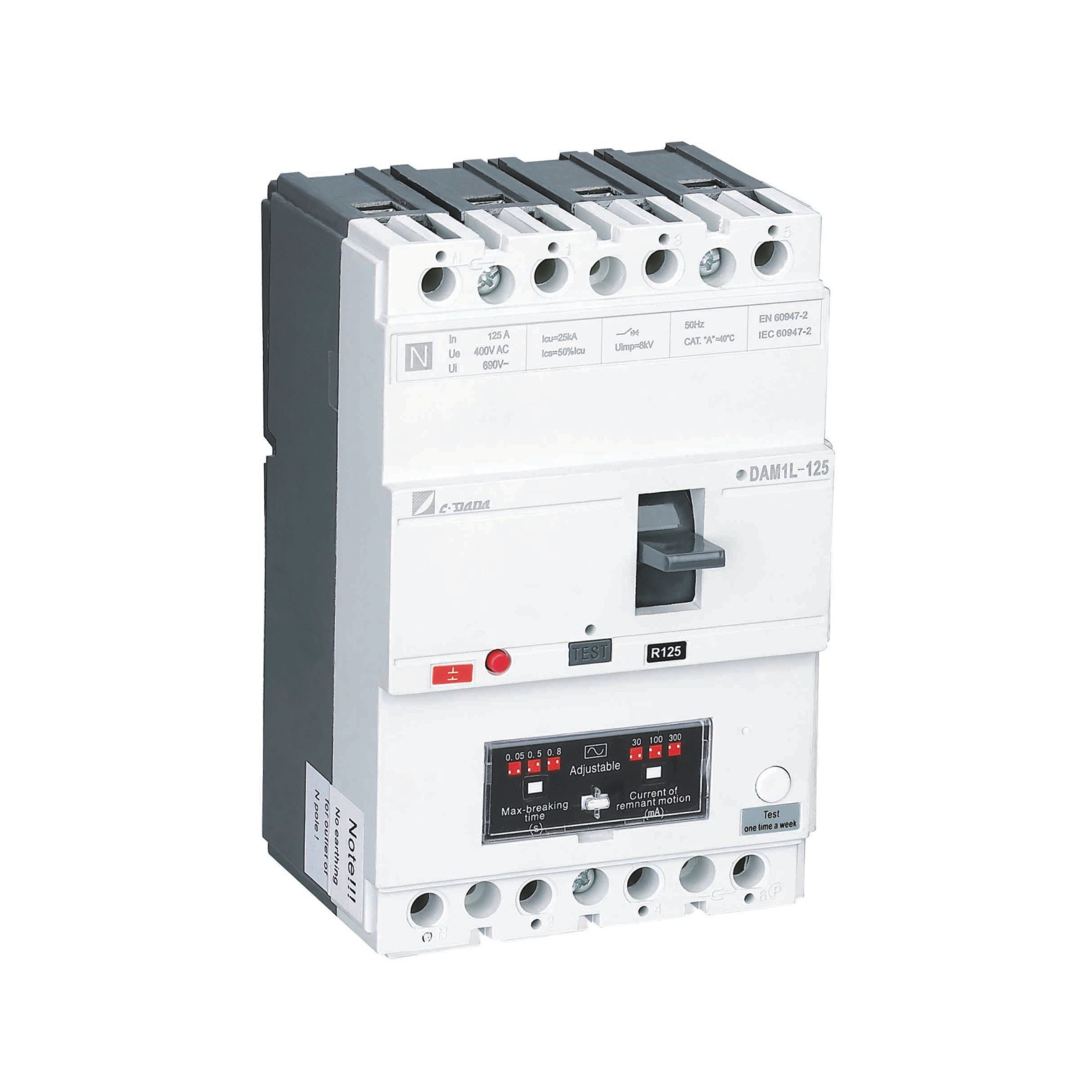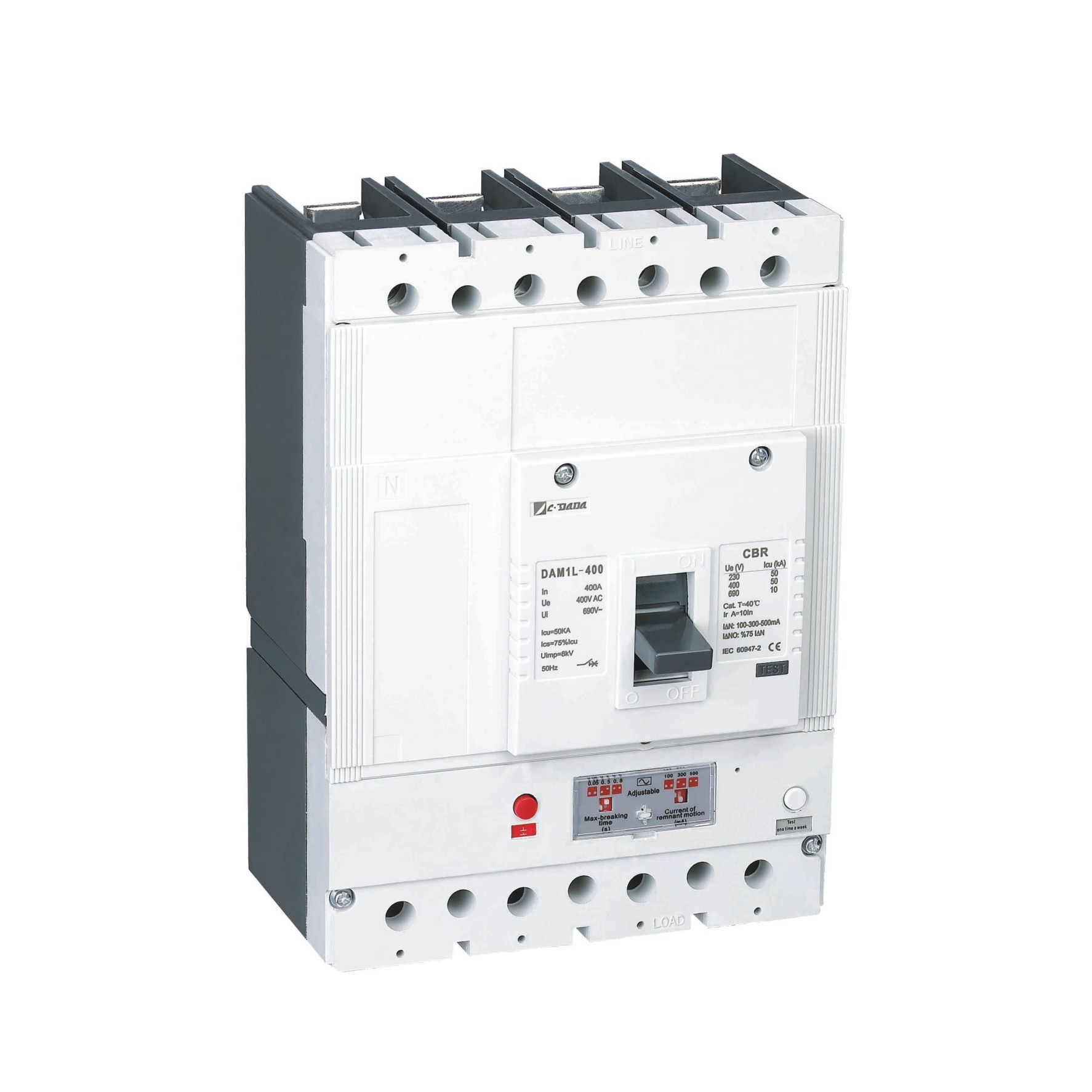Circuit protection is critical in any electrical system, and choosing the right leakage circuit breaker can prevent serious hazards such as electric shocks, equipment damage, or even fire. Two commonly used devices in this category are RCCBs and RCBOs. Although they sound similar, their functions and applications differ significantly. This guide will walk you through their differences and help you decide which is best for your needs.

An RCCB, or Residual Current Circuit Breaker, is a protective device designed to disconnect a circuit whenever it detects a leakage current to earth. This leakage could be caused by faulty insulation, damaged wiring, or accidental contact with live parts. RCCBs play a vital role in preventing electric shocks and fire hazards caused by earth faults.
The operation of an RCCB is based on the principle of current balance between the live and neutral conductors. Under normal conditions, the current flowing in through the live wire is equal to the current returning via the neutral wire. If a person touches a live wire or there's a leakage path, the current becomes unbalanced. When this imbalance exceeds a certain limit (called residual current), the RCCB trips the circuit immediately, often within milliseconds.
RCCBs vary by pole configuration and the type of residual current they can detect:
2-pole RCCB: For single-phase systems
4-pole RCCB: For three-phase systems
Type AC: Detects standard alternating current leakage
Type A: Detects AC and pulsating DC leakage
Type B and F: For more complex leakage signals, such as high-frequency or smooth DC currents
RCCBs are commonly used in residential and commercial electrical panels, typically combined with miniature circuit breakers (MCBs) to achieve full protection.
RCBO stands for Residual Current Breaker with Overcurrent Protection. It is a multifunctional device that not only detects earth leakage but also protects against overcurrent caused by overload or short circuit. RCBOs are ideal for circuits that require both types of protection in a single device.
Like RCCBs, RCBOs detect imbalance between live and neutral wires to trip during earth faults. However, they also contain two additional mechanisms:
Thermal trip unit: Responds to overload by using a bimetallic strip that bends when overheated
Magnetic trip unit: Reacts instantly to high current surges, such as those from short circuits
This makes RCBOs capable of isolating faulty circuits under a wider range of electrical issues.
The main difference lies in the level of protection each device offers. RCCBs are limited to earth leakage protection. If used alone, they need to be paired with MCBs to protect against overload and short circuits. RCBOs, on the other hand, provide all three protections—earth leakage, overload, and short circuit—in one compact device.
While RCCBs are generally more affordable, RCBOs offer convenience, reduced wiring complexity, and individual circuit protection. In installations where minimizing disruption is important, RCBOs allow only the affected circuit to trip, whereas an RCCB might cause multiple circuits to lose power at once.

You are protecting multiple circuits with a shared leakage protection device
You want a cost-effective solution by combining RCCB with MCBs
The risk of individual circuit faults is low
You need protection for specific high-risk or critical circuits
You want to prevent a single fault from affecting multiple circuits
Space saving and simplified installation is a priority
To make an informed decision, it helps to understand how RCCBs and RCBOs compare to other devices:
MCB: Protects against overcurrent and short circuits only, not earth leakage
RCCB: Protects against earth leakage but not overcurrent
RCBO: Provides all-round protection
ELCB: An older term, sometimes refers to voltage-operated earth leakage devices, largely replaced by RCCBs
Each device plays a role, but the combination and application depend on your system requirements.
RCBOs and RCCBs both enhance electrical safety, but they serve different purposes. RCCBs are suitable when you only need protection from earth faults, and when cost is a major factor. RCBOs are the preferred choice for comprehensive protection on individual circuits, especially in modern homes and commercial installations.
By understanding these differences and assessing your system's needs, you can select the right device to ensure safety, reliability, and efficiency in your electrical setup.